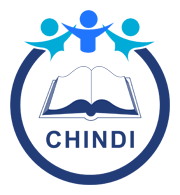 Jane Cable’s big lessons from self publishing
Jane Cable’s big lessons from self publishing
At the moment I’m juggling. Even more than ever with a house move and Chindi’s talks at the Festival of Chichester both approaching at a frightening pace. And juggling means making the best use of my time, so when I was thinking about the biggest lessons I’ve learnt for Chindi’s self publishing workshop I thought they would make a good article as well.
Put simply, they fall into two categories.
- Your book may be self published but it has to be as good as anything brought out by a major house – if not better. You can’t afford for it to look out of place in a bookshop or on people’s shelves at home. Cover design, shape and size are hugely important.The content has to be perfect too – and I mean perfect. You are asking people to pay for your work and this is a total game-changer. How would you feel if you picked up badly stitched shirt – or a book full of typos where the plot didn’t hang together?The best single piece of advice I can give any would-be author is that if you are tempted to publish your book without anyone else looking at it first, then don’t. Even the super-talented have lapses of concentration and mistakes creep in. At least have some sort of edit or proof read. Follow your gut instinct as to which would be the most important for you.
Basically there are three main sorts of edit: structural (which evaluates the whole manuscript and how well it works as a novel); copy (studies the manuscript line by line for spelling, grammar and consistency); proof read (works on the print or ebook ready version for formatting and a final check on spelling and grammar).
It’s always best to pay a professional but if you really can’t afford it and/or have a super-careful relative or friend at least get them to proof it. You’ve spent so long nurturing your manuscript you just won’t see all the mistakes yourself.

- You will spend at least as much time marketing as writing and you need to do it. You have no-one else to do it for you, unless you can afford professional help.Before your book comes out, cover the basics: think about who your target audience are, how you are going to reach them and how/where they are going to buy your book. You will be in a very crowded market. How is your book different? How can you make it sound unique and enticing?Although I had some background in PR and promotion, when my first novel, The Cheesemaker’s House, came out I was clueless about book publicity. I had arranged for a former colleague to do some PR for me, but that was it. Pretty soon I had to learn about social media, book bloggers, AI sheets, collateral. Because I had chosen an assisted publishing route with Matador it was easier, but I still needed to invest a huge amount of time.
There are, however, great resources available: books (such as Chindi’s Before You Press Publish), online (ALLi – The Alliance of Independent Authors), blogs and of course groups like Chindi which exist to help you and provide mutual support. When I joined Chindi my marketing came on in leaps and bounds and as the group becomes more online we welcome authors from around the world.Even if you move into the world of traditional publishing these skills are hugely important and it’s always worth remembering that ultimately you are responsible for your book’s success.Find out more about Chindi’s author resources here: http://www.chindi-authors.co.uk/for-writers/
